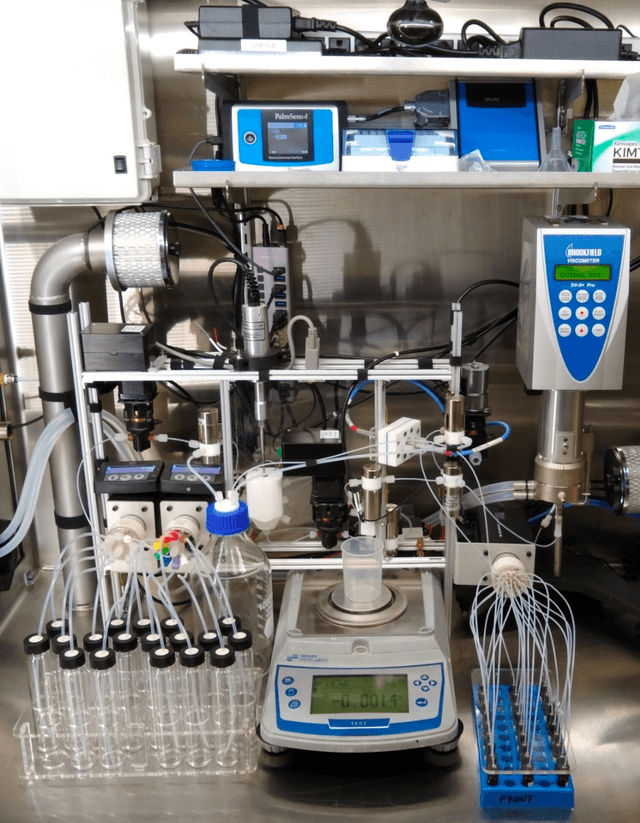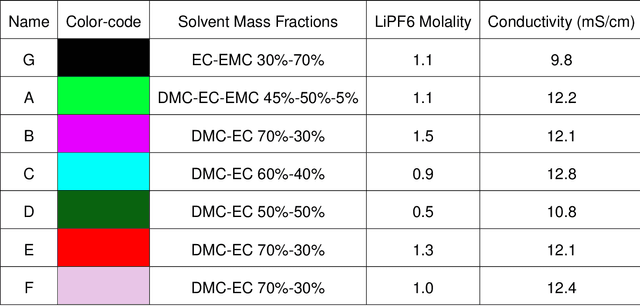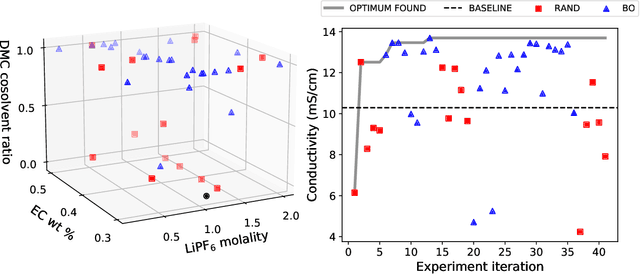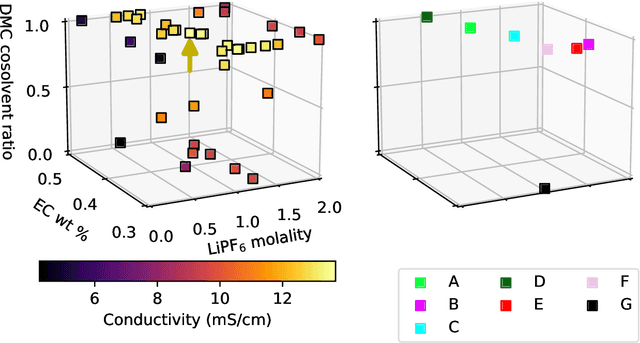Sven Burke
Autonomous optimization of nonaqueous battery electrolytes via robotic experimentation and machine learning
Nov 23, 2021



Abstract:In this work, we introduce a novel workflow that couples robotics to machine-learning for efficient optimization of a non-aqueous battery electrolyte. A custom-built automated experiment named "Clio" is coupled to Dragonfly - a Bayesian optimization-based experiment planner. Clio autonomously optimizes electrolyte conductivity over a single-salt, ternary solvent design space. Using this workflow, we identify 6 fast-charging electrolytes in 2 work-days and 42 experiments (compared with 60 days using exhaustive search of the 1000 possible candidates, or 6 days assuming only 10% of candidates are evaluated). Our method finds the highest reported conductivity electrolyte in a design space heavily explored by previous literature, converging on a high-conductivity mixture that demonstrates subtle electrolyte chemical physics.
 Add to Chrome
Add to Chrome Add to Firefox
Add to Firefox Add to Edge
Add to Edge